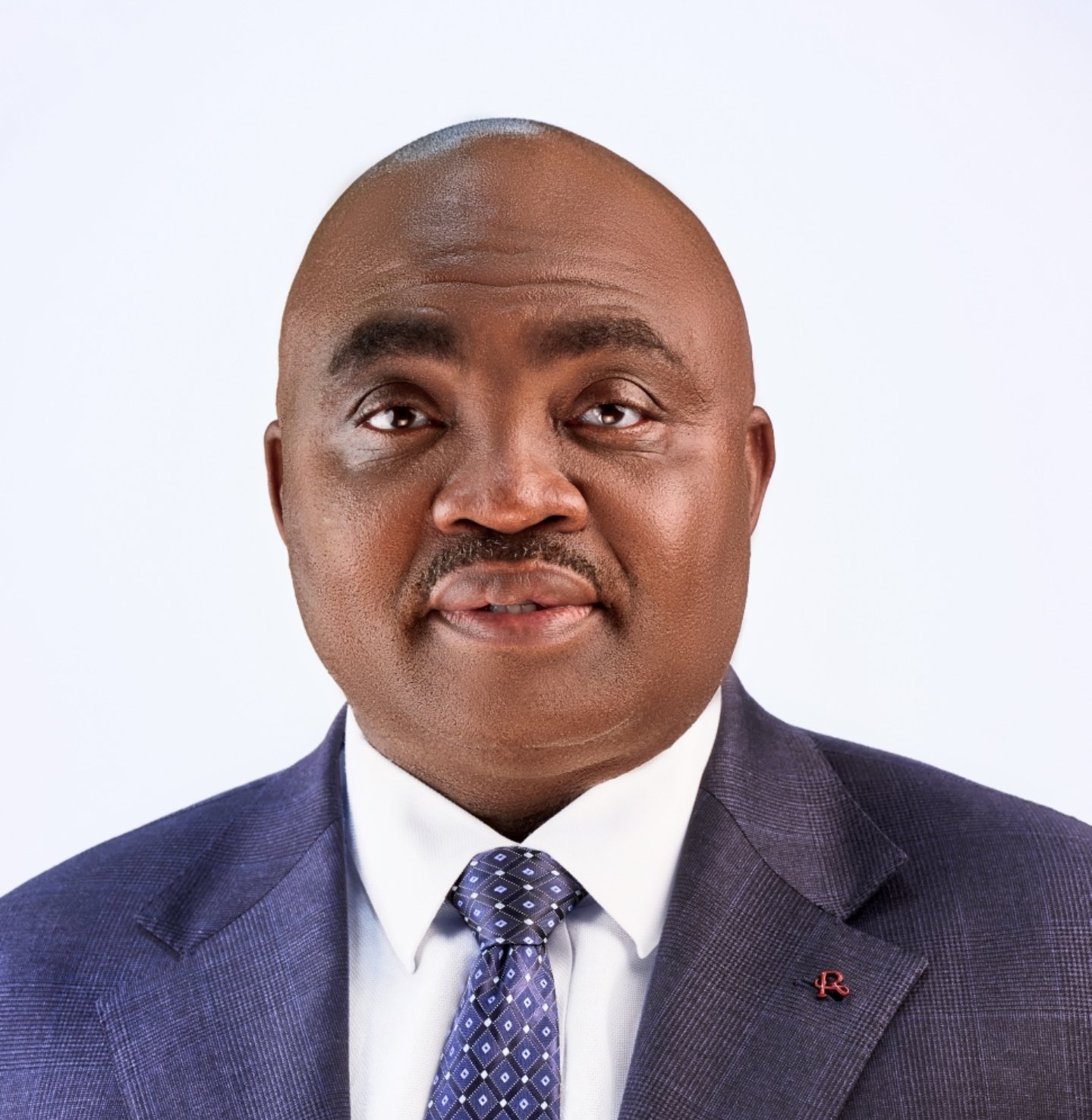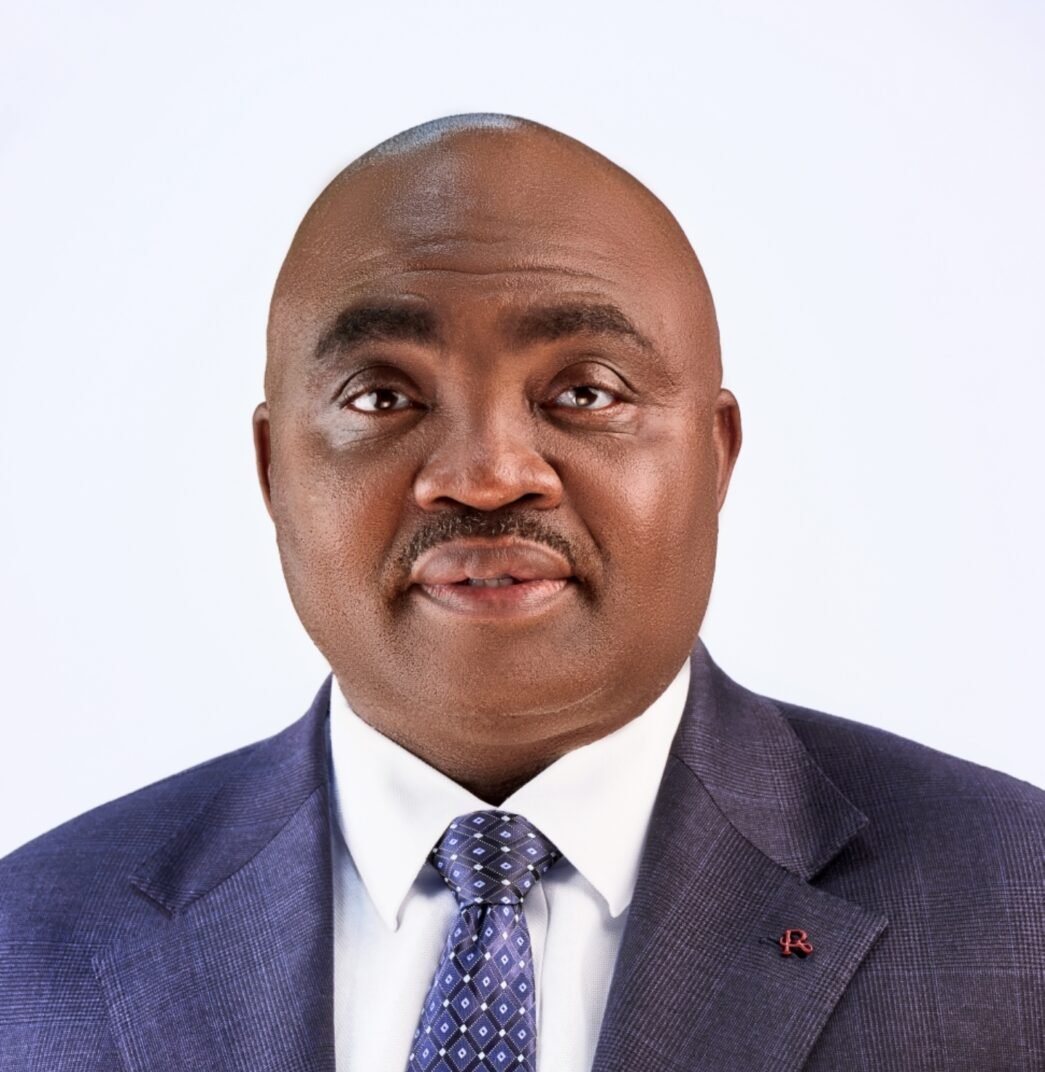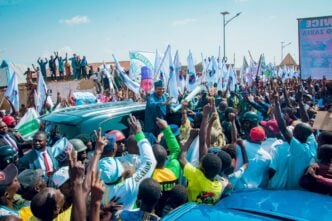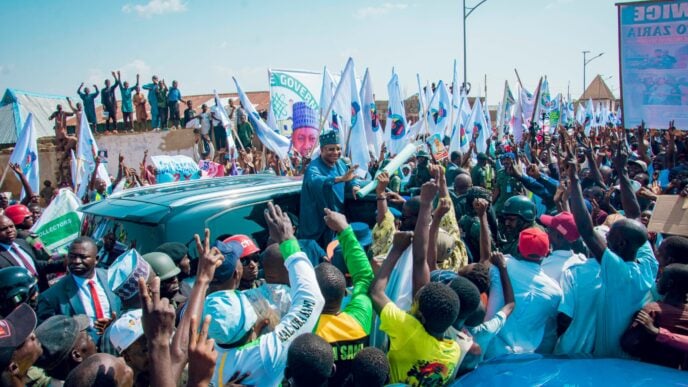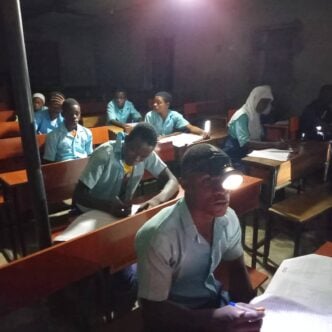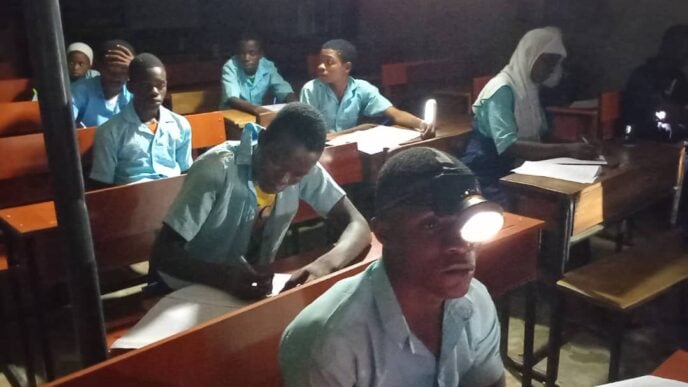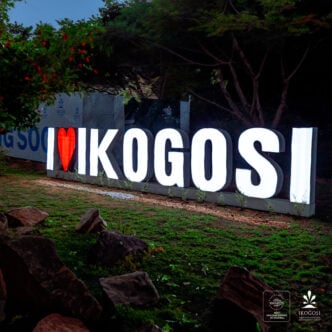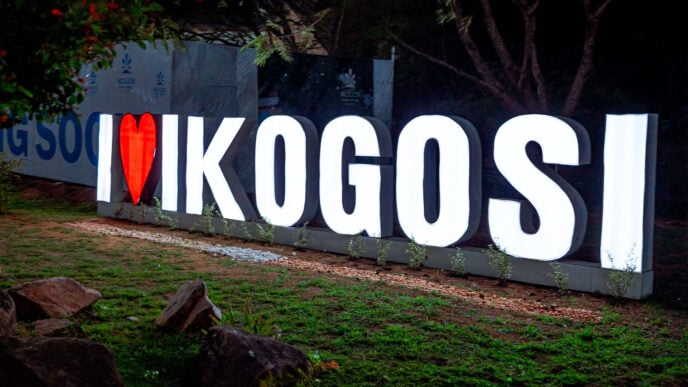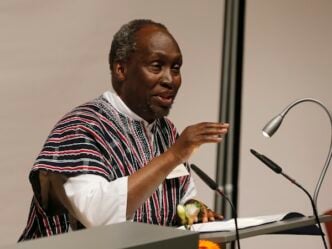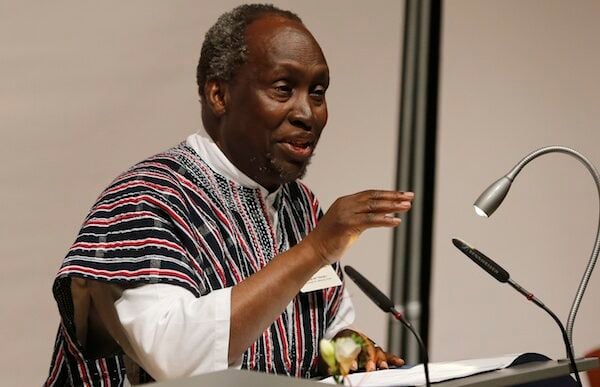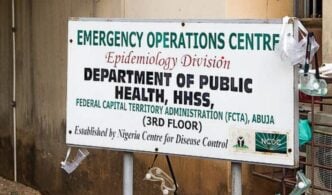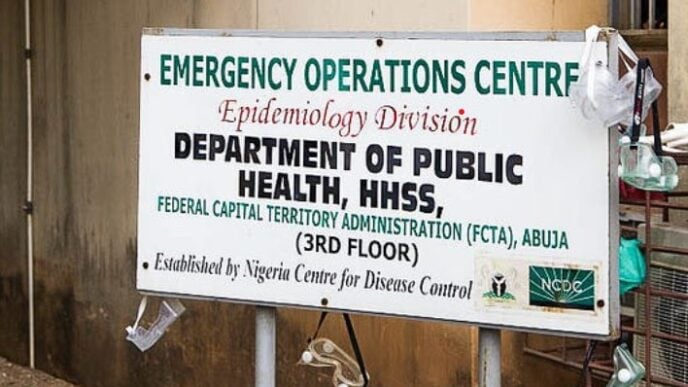BY JOBSON OSEODION EWALEFOH
President Bola Ahmed Tinubu has marked a defining chapter in Nigeria’s history—one anchored on courage, bold reforms, and a relentless pursuit of progress. As ThisDay Newspaper crowned him 2024 “Man of the Year,” they rightly noted:
“Whether lampooned or lionised, President Bola Tinubu could not be accused of lacking courage to take tough decisions or the will to stay the course.”
Those words ring true.
Advertisement
In just two years, President Tinubu has embarked on transformative initiatives across various sectors, laying the groundwork for sustainable development.
Key reforms include the removal of petrol subsidies and the unification of the exchange rate, creating a market-reflective and stable currency environment. These measures have enabled the Central Bank of Nigeria to increase foreign exchange reserves, now more than $38 billion.
These reforms have resulted in a surge in investment inflows, with domestic and international investors regaining confidence in the economy. Fitch upgraded Nigeria’s long-term foreign-currency issuer default rating from B- to B and revised the outlook from Negative to Stable in April 2025. This upgrade reflects increased confidence in the government’s commitment to policy reforms, including exchange rate liberalization, monetary policy tightening, and steps to end deficit monetization and remove fuel subsidies.
Advertisement
The World Bank recently reported that Nigeria’s economy grew at its fastest rate in nearly a decade in 2024, attributing this to the early successes of the President’s macroeconomic reforms. The country’s fiscal deficit dropped from 5.4% of GDP in 2023 to 3.0% in 2024, bolstered by increased national revenue, from ₦16.8 trillion to ₦31.9 trillion.
Infrastructure and Public-Private Partnership (PPP) Acceleration
President Tinubu’s focus on infrastructure development has catalyzed greater private sector participation in critical sectors such as healthcare, transportation, energy, ICT, among others. The President reiterated his administration’s stance on PPP at the 29th Nigerian Economic Summit (NES) held on October 23, 2023. He stated, “We must work together. I have proven capacity in this regard, as we remember the role of public-private partnerships in the transformation of Lagos State under my leadership. We will replicate that across Nigeria with your unwavering support”.
The President has demonstrated his commitment to road infrastructure in Nigeria, with numerous projects including the 6-lane 700-kilometre Lagos-Calabar coastal road designed to enhance connectivity and facilitate trade across eight states—Lagos, Ogun, Ondo, Delta, Bayelsa, Rivers, Akwa Ibom, and Cross River; and the Sokoto-Badagry highway that links the Western and Northern parts of the country. The Keffi-Akwanga-Lafia-Makurdi highway has been commissioned and is operational, while the Benin-Asaba highway has been flagged off under the Highway Development and Management Initiative (HDMI). The contractor has since moved to the site.
Advertisement
The administration has also implemented far reaching reforms in the area of internal security and boarder control management with the introduction of biometric passport application and e-visa initiatives, the implementation of Advanced Passenger Information (API) system, the Command and Control Center and the deployment of e-gates at the four major airports to make arrival and screening seamless for Nigerians.
The administration is implementing, approving, and advancing PPP projects across various sectors to drive infrastructure development and economic growth. At the Federal Executive Council (FEC) meeting of 12th May 2025, approvals were granted for some PPP projects that include:
- MediPool: A centralized procurement and distribution hub for medicines, vaccines, and medical consumables, ensuring access in rural and underserved areas. It also includes local production of drugs. A groundbreaking PPP to centralise the procurement and delivery of medicines, vaccines, and supplies across Nigeria.
- Ikere Gorge Hydropower Project (Oyo State): A revival of a 1970s project under a Finance-Build-Operate-Transfer (FBOT) model to generate a 6MW small hydroelectric power project in Oyo State, developed via PPP. It is designed for expansion—irrigation, water supply, and solar integration.
- Federal Coastal Fishery Terminal (Borokiri, Rivers State): Rehabilitation and upgrade of the Federal Coastal Fishery Terminal, Borokiri, Rivers State, to boost domestic fish production, enhance post-harvest handling, and improve food and nutrition security.
Other notable PPP projects include Kashimbila Integrated Cargo and Agro-Allied Airport Project (Taraba State. The project involves the upgrade of an existing airstrip into a cargo/agro-allied airport and the development of over 3,000 hectares of farmland for irrigation, livestock ranching, and fish farming.
Additionally, talks are ongoing for a PPP initiative to construct the Dasin Hausa Dam to mitigate flooding from the Lagdo Dam in Cameroon. The Product Authentication and Tracking System (PATS) aims to combat counterfeit goods by digitally tagging products with unique security codes.
Advertisement
These projects will not only drive infrastructure development but also embody the spirit of the Renewed Hope Agenda—transforming infrastructure delivery, creating jobs, and ensuring no region is left behind.
Youth Inclusion and Empowerment
Advertisement
The administration has also demonstrated a firm commitment to youth inclusion by appointing a significant number of young Nigerians into key political and leadership positions. This intentional shift signals a break from the past and an embrace of a new generation of thinkers and doers poised to shape Nigeria’s future. From Ministers to Heads of strategic agencies, young professionals are now at the forefront of national development, bringing innovation, energy, and fresh perspectives to governance.
Complementing this is the administration’s robust support for Micro, Small, and Medium Enterprises (MSMEs)—a sector dominated by the youth. Through initiatives like the Presidential Conditional Grant Scheme and the rollout of targeted loan programmes, thousands of young entrepreneurs have received access to funding, business support, and mentorship. These interventions are not only empowering job creators but also stimulating grassroots economic activity, reinforcing the Renewed Hope Agenda’s focus on inclusive growth and youth-driven prosperity.
Advertisement
Agriculture and Food Security
To address food insecurity and rising prices, the President declared a state of emergency on food production. This unlocked ₦100 billion in fertiliser support for farmers and spotlighted Taraba State’s agricultural potential as a national model. Agriculture is once again being positioned as a driver of inclusive growth.
Advertisement
Energy and Digital Transformation
In power and energy, the administration initiated the National Integrated Electricity Policy—an ambitious $122 billion roadmap that combines infrastructure renewal with investor-friendly reforms. It aims to power industry, productivity, and innovation.
In addition, the administration signed the Electricity Act, 2023, a transformative piece of legislation that decentralizes the power sector by allowing states to develop, generate, transmit, and distribute electricity independently. This strategic move empowers sub-national governments to attract private sector investments, tailor energy solutions to local needs, and accelerate access to reliable power across the country.
In the digital economy, Nigeria has moved into the spotlight. Under Tinubu’s leadership, foreign direct investment surged from $22 million in Q1 2023 to $191 million in Q1 2024. A major driver is the proposed $2 billion national fibre optic rollout, delivering high-speed internet and transforming how Nigerians live, learn, and work.
Health, Security, and Social Impact
Healthcare is being reimagined from the grassroots. The National Health Fellows Programme is deploying young professionals to all 774 local government areas, ensuring quality care reaches remote communities.
Security is also being addressed with both firmness and empathy. The clearing of ₦18 billion in insurance arrears for military personnel reaffirmed faith in the armed forces. Coordinated efforts have restored calm in parts of the Northeast and Northwest, where farmlands are now returning to life.
Through the Renewed Hope Initiative, women and youth are receiving targeted support. Amendments to the Social Investment Programmes have strengthened transparency and ensured impact-driven delivery.
Global Leadership and Climate Action
On the global stage, the administration introduced the 4Ds Foreign Policy Doctrine—Democracy, Development, Demography, and Diaspora—repositioning Nigeria as a key global actor and investment destination.
Equally notable is the leadership on climate action. Climate resilience is now a national priority, not a policy afterthought, and Nigeria is asserting its voice in global sustainability dialogues.
Conclusion: A Call to Collective Responsibility
As we reflect on President Bola Ahmed Tinubu’s two years in office, one thing is clear: this presidency is defined not by rhetoric, but by results. From economic stability and infrastructure revitalisation to social investment and national security, he has confronted Nigeria’s challenges with clarity and conviction.
Transformation on this scale requires more than leadership—it requires partnership. It calls for belief and active participation from all Nigerians—young and old, rural and urban.
Now is the time to rise beyond cynicism, see the big picture, and contribute to a cause greater than us.
The future is being built brick by brick, reform by reform. The call is clear: Support the Renewed Hope Agenda, not just for today, but for the Nigeria of our dreams.
Dr. Jobson Oseodion Ewalefoh is the Director General, Infrastructure Concession Regulatory Commission
Views expressed by contributors are strictly personal and not of TheCable.
